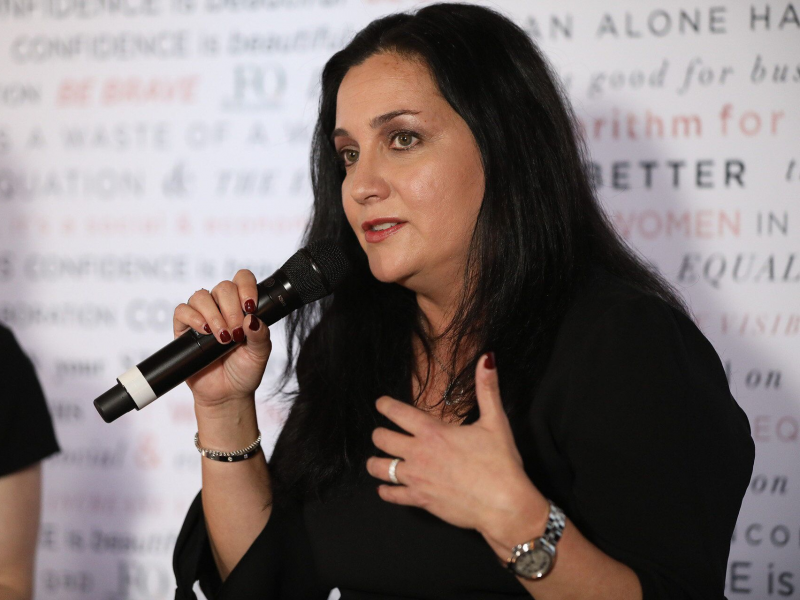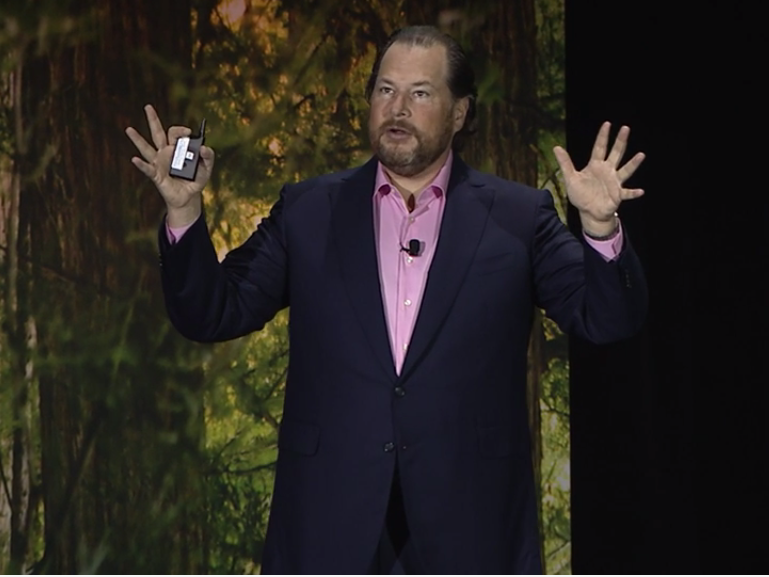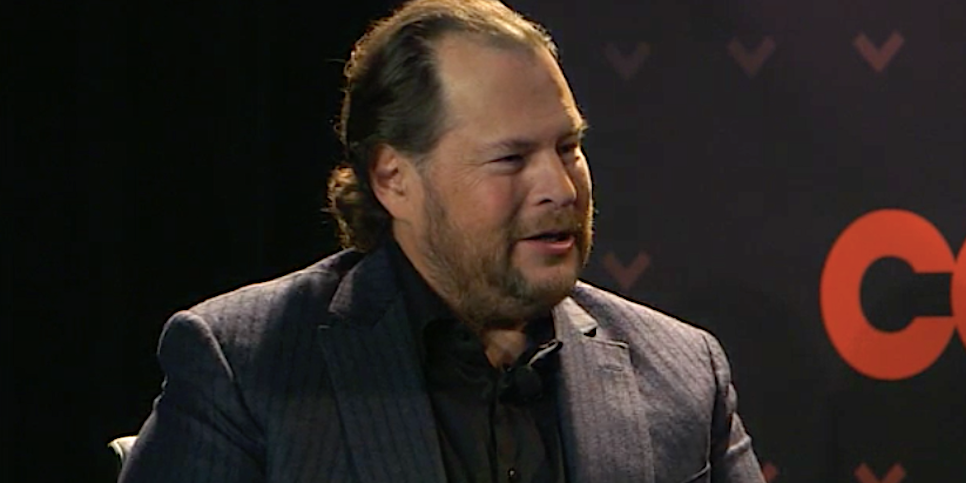- Salesforce CEO Marc Benioff said in a recent interview with Business Insider’s Julie Bort that creating an equal workplace for women means taking a number of actions.
- The company can’t just say it pays women equally. It needs to audit the payroll and dish out raises, not excuses, Benioff said.
- And companies can’t just claim zero tolerance for sexual harassment. They need to fire people who cross the line. Something Benioff said Salesforce has done.
Salesforce CEO Marc Benioff will be the first to tell you: if you want to create a company that is truly an equal opportunity employer for women, there’s several parts to it: You can’t just promise to pay women equally, you have to audit your books and be willing to spend millions annually to increase salaries when you, inevitably, find discrepancies.
Salesforce has now done that twice, in two years, spending $6 million total, he told me during an on-stage interview at Salesforce’s developer’s conference in San Francisco. And the funny thing is, when he was first asked to audit the books he sort of balked, believing that there just couldn’t be a pay gap at his company, he also said.
On top of that, CEOs have to provide a safe work environment that stamps out both sexism – the type of behavior that leaves women out of meetings and out of opportunities for advancement – and sexual harassment.
And if you say you have zero tolerance for allegations of sexual harassmentt, you have to back that up with action, firing someone who behaves inappropriately, even if that behavior is in a “gray area.”
He has recently done that, too, he told me.
Equal pay: $3 million in raises one year and $3 the next
On the equal pay front, he explained, "There has to be pay equality."
"We've had to make two pay adjustments already. One $3 million adjustment and a second $3 million adjustment when we acquired a bunch of companies and we bought their pay scales. And even though we had gender equality, we rebooted again," he said.
He's referring to his initial audit, in 2017, which happened after two of Benioff's female execs approached him and a asked him to tackle the pay gap by starting at home, auditing Salesforce's own pay rates. Those two women were Leyla Seka, one of his general managers of a small unit (who today is an executive vice president of a bigger unit), and head of HR, Cindy Robbins.

Back in 2017, when he was first approached, for an instant, he scoffed, positive that was not pay discrepancy at Salesforce, he said in interview with Lesley Stahl on 60 Minutes that aired on Sunday.
But he was game to audit and look at the data. And he was shocked to discover that pay rates were not equal "just everywhere. It was through the whole company, every division, every department, every geography," he said. Over 10% of the women got pay raises in 2017.
What happened? "There's a cultural phenomenon where women are paid less," Benioff said to Stahl. So not only did he adjust salaries, he discussed it all publicly, urging all other CEOs to do so the same.
And a year later, after another audit, low-and-behold pay rates were not equal, again, thanks to the rates of pay from companies Salesforce had acquired, he said. So he increased pay by another $3 million.
'Zero tolerance' means someone was fired
Another level of being a good employer is to ensure that women are not harassed. Period.
Many companies claim to have a "zero tolerance" for such behavior. Sexual harassment is illegal after all.
But Benioff says, as the #MeToo movement has shown, such statements are often not matched with corporate behavior.

"You see the #MeToo movement. This is real. You can't deny what is happening and every CEO has to have that responsibility to prevent sexual harassment," he said on stage.
"Now, we have 30,000 employees and I can tell you they're not all lined up for sainthood, okay, staring with this one," he said pointing to himself.
But allegations of sexual harassment, or any "gray area" close enough to it, is simply a "red line" that cannot be crossed he said.
And he admitted on stage, "We recently had to fire an executive that we did not want to have to fire and it's not the first one because they crossed a line that was gray. And in our company gray is not alright. You just have to hold that line."
Salesforce has so far not offered additional comment on who it fired, for what reason or even what kind of behavior it believes constitutes a gray line.
Like other companies that have 30,000 employees, we have heard stories of consensual fraternizing between people at the company, which is not the same thing as harassment.
Benioff wants it to be known, though, that he's not just listening, he's acting.
"The thing about values is, values don't mean anything until they turn into behaviors. And you've got to really look at what is the behavior in your company," he said.
Do you have a story to share about sexism or harassment in the tech industry? Please let us know. [email protected] or message me on at @Julie188 on Twitter.
Here is the full interview. Benioff discusses the implications of the #metoo movement starting at 55:35.
http://www.youtube.com/watch?v=2nC0TX_GCIM?start=3335

